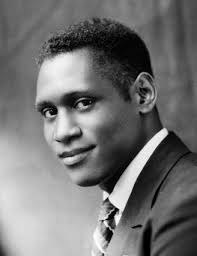Introduction to "Ol' Man River"
Immerse yourself in the powerful resonance of "Ol' Man River", a 1920s song deeply etched into the annals of American music history. Sung by the inimitable Paul Robeson, this song stirs the soul, evoking the melancholic spirit of the Mississippi river and the hard lives of the African American laborers who worked its shores.
Cultural and Historical Context
Enriched with cultural significance, "Ol' Man River" encapsulates the struggle, resilience, and enduring spirit of African Americans in the early twentieth century. Robeson, an African American artist, activist, and athlete, infused this piece with an unyielding authenticity, his deep baritone voice echoing the hardships of the working class. This song, released in the 1920s, remains a poignant reflection of a critical era in American history.
Fascinating Fact about "Ol' Man River"
Did you know that Paul Robeson altered the lyrics of "Ol' Man River" over time to reflect his own growing political consciousness? He transformed this piece from a lament to a song of protest and defiance, reinforcing its cultural impact and relevance.
Cover Versions of "Ol' Man River"
Such is the enduring appeal of this track that it has been covered by a multitude of artists, each bringing their unique interpretation to the song. Notable cover versions include those by Frank Sinatra, Judy Garland, and Sam Cooke. Yet, none could quite capture the raw emotional depth that Robeson instilled into this timeless piece.
Why "Ol' Man River" is Still Relevant Today
Despite being a 1920s song, the relevance of "Ol' Man River" persists. It serves as a stark reminder of the struggles faced by marginalized communities, resonating with contemporary issues of social justice and equality. Robeson's powerful rendition continues to inspire and move audiences, affirming the song's enduring legacy and cultural impact.

Comments (0)